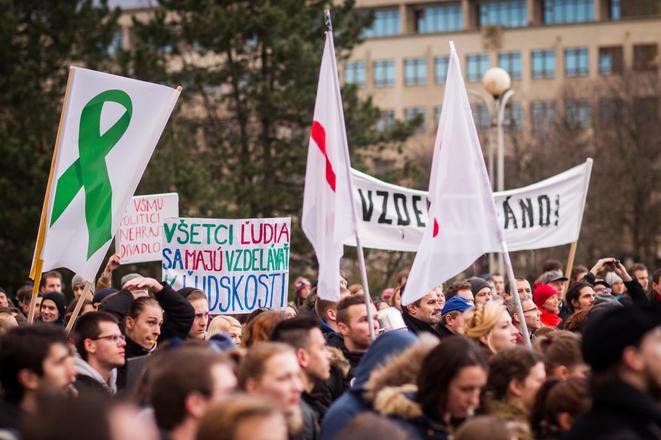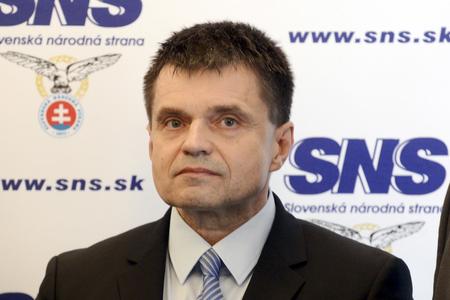Two sectors of public administration have particularly stood out during the election campaign: health care and education. Amid emotional appeals to the migration crisis, practical problems like schools and hospitals, neglected to the point that in many of them roofs are leaking and plaster is coming off walls, were telling issues.
Despite obvious public concern about both, the new coalition government does not appear to be taking both on equally. By appointing Tomas Drucker (recently awarded the ‘Most Respected CEO 2016 title as the general director of the postal service company) health minister, the government told the public that they recognise the troubles of health care and will try to deal with at least some of them. However, by installing Peter Plavčan to lead the Education Ministry, keeping him there despite revelations about his misconduct as a public servant in the past, they showed that it will be business as usual when it comes to managing the country’s schools.
Meanwhile, Plavčan had been roaming the media, saying we should all wait and see the biggest reform in the past 25 years that he was going to present in the programme statement and launch during his term. This is the same Plavčan who has been at the ministry for a quarter century and in his most recent posting of the general director of section of universities did little to improve higher education. In fact, academics from Slovak universities who launched a petition against his appointment say he did just the opposite: “his era in the post is marked with a number of bad decisions that have harmed education and research in Slovakia and that he is responsible for”.
It is naïve to think that he would do differently with the entire education system and indeed the programme statement that his ministry drafted suggests he will not. The bold declaration that education is one of the government’s top priorities in the upcoming term is not sustained by the sum of money the government plans to spend in the sector. Plavčan’s ministry declares they want to “increase the attractiveness of the job of a teacher through financial rewards” but then counts on salary raises by mere tens of euros, less than half of what the teachers have been calling for.
Teachers do deserve more money, and education deserves a crisis manager just like health care, but Plavčan does not seem to be a man for that job. And the nationalist Slovak National Party (SNS) whose past ministers in other departments have been linked with some of the country’s biggest corruption affairs does not seem to be the right party to shelter that job.
SNS has so far chosen to turn a deaf ear to the accusations against Plavčan, and so have its coalition partners, although it was an opportunity for all three of them to show they mean it when they say education is their priority. It was an opportunity for Most-Hid and Siet, who supported the teachers’ demands before the election, to show they do get their say in how the country is ruled. It was an opportunity for Prime Minister Robert Fico to show he wants his government to at least give a good first impression in education too.
Even if Plavčan had great ideas, could Slovaks really forgive him and those who chose him for the job for their lack of respect to laws and morals as demonstrated in the past?
Thus far most people still seem easily satisfied with the (very popular) apologetic saying that ‘politicians are people too’ and that they make mistakes. Therefore we should forgive them if they trespassed against us, against the state and its rules, against morals.
Until voters start holding political leaders up to higher standards — insist that they are the best of the best, not just professionally but also morally — we can’t expect big changes.



